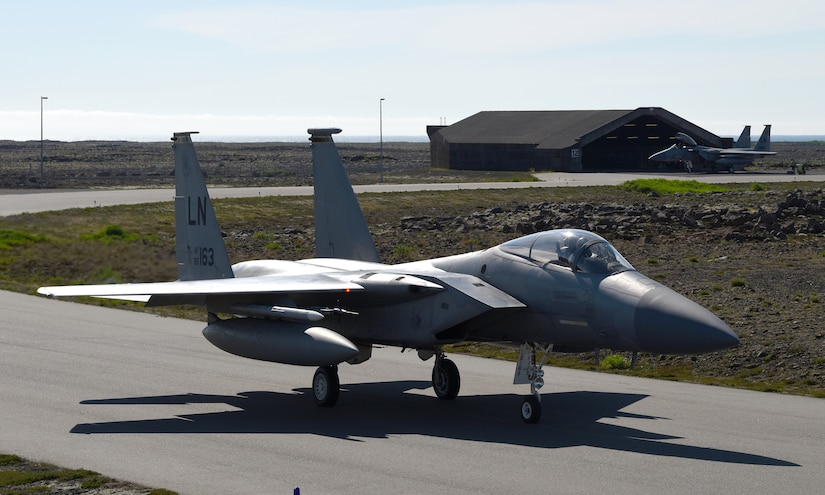By Air Force Staff Sgt. Alex Echols, 48th Fighter Wing
KEFLAVIK AIR BASE, Iceland -- Air Force F-15 Eagle pilots
are helping to guard the skies over Iceland for the eleventh time since NATO’s
Icelandic Air Surveillance mission began.
The 493rd Expeditionary Fighter Squadron began flying
operations here this week in support of the mission, highlighting America’s
commitment to NATO and the strength of its ties with Iceland. The squadron is
tasked with supplying airborne surveillance and interception capabilities to
meet its host’s peacetime preparedness needs and bolster the security and
defense of allied nations.
During their rotation, the squadron will maintain an alert
status 24 hours a day, seven days a week as part of their peacetime mission.
This means they are ready to respond within minutes to any aircraft that may
not properly identify themselves, communicate with air traffic control or have
a flight path on file.
Strengthening NATO Partnerships
"This deployment gives us the opportunity to strengthen
our NATO partnerships and alliances and train in a different location while
continuing to improve our readiness and capability for our alert
commitment," said Air Force Lt. Col. Cody Blake, 493rd EFS commander.
"Our overall expectation is to maintain a professional presence in
everything we do."
To remain vigilant, the squadron performs daily
"training scrambles" in which they simulate real-world alert
notification and execute planned protocols to ensure a speedy response.
More than 250 airmen assigned to U.S. Air Forces in
Europe-Air Forces Africa and 13 F-15C/D Eagles deployed from Royal Air Force
Lakenheath, England, with additional support from U.S. airmen assigned to
Aviano Air Base, Italy. Four of the aircraft are tasked with direct support of
the Icelandic Air Surveillance mission, while the additional nine aircraft will
conduct training missions, providing pilots invaluable experience operating in
unfamiliar airspace.
While providing critical infrastructure and support, Iceland
has looked to its NATO allies to provide airborne surveillance and interception
capabilities to meet its peacetime preparedness needs since 2008.
"Every year, we experience how qualified the air forces
of the NATO nations are and how well trained they are to conduct the
mission," said Icelandic Coast Guard Capt. Jon B. Gudnason, Keflavik Air
Base commander. "This is what makes NATO such a great partner."
NATO allies deploy aircraft and personnel to support this
critical mission three times a year, with the U.S. responsible for at least one
rotation annually. So far, nine nations have held the reigns in support of
Iceland: Canada, the Czech Republic, Denmark, France, Germany, Italy, Norway,
Portugal and the U.S.








No comments:
Post a Comment